First a couple of links. I recently met a San Jose photographer called Gary Parker, who does some interesting work, including portraits of people with their pets and photos of little people.
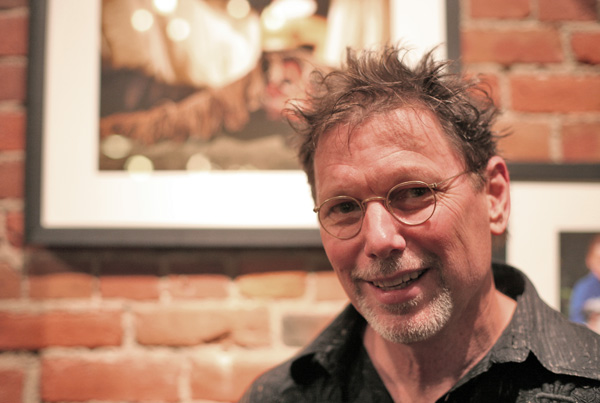
Gary has a show of his photos at the Bear Coffee shop on Santa Cruz Avenue, in Los Gatos, with an opening last night, and some of his friends came by, including a master pumpkin-carver.
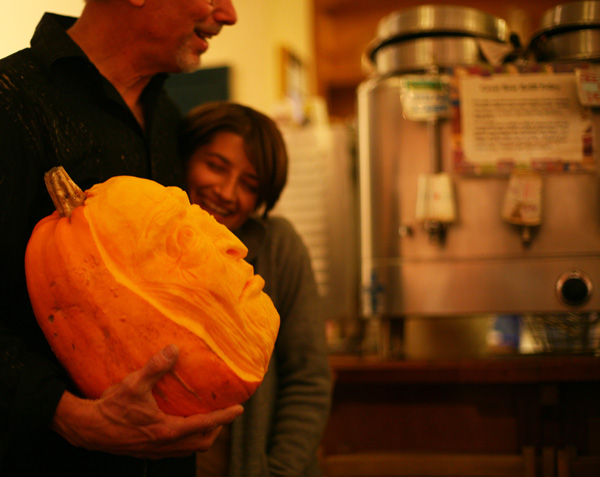
My guru-like friend Ralph Abraham has been working on his website, posting some thoughts about chaos and the stock market crash, and making all of his past articles available, including an intriguing paper called “Mathematics and the Psychedelic Revolution,” which exposes some of the hidden history of Silicon Valley. Far from being a herd of nerds, a very large number of computer graphics pioneers were ecstatic stoners.

And now for another excerpt from my memoir-in-progress, Nested Scrolls.
When I started Swarthmore College in 1963, I’d been planning to major in philosophy or in literature, even though Pop kept urging me to study something more technical. “You can read all those books on your own,” he insisted. “Read those books, of course, but learn some science too. Be a Renaissance man!”

Although my natural bent was to disagree with Pop, after a couple of semesters, I decided he was right. I wasn’t getting much out of the philosophy and literature courses that I was taking. I asked my philosophy professor about the meaning of life, and he deluged me with double-talk. And the English lit professor wanted us to read unbearable stuff like Pamela or Vanity Fair. I found these books so dull that, try as I might, I couldn’t even read their summaries in our library’s treasured resource: Masterplots, a twelve volume set with the plot stories of the world’s finest literature.
Before long, I found it too much trouble to even read the summaries in Masterplots, but by then it had became a running joke among the other introductory literature students always to check out the Masterplots volumes under the name Rudy Rucker.
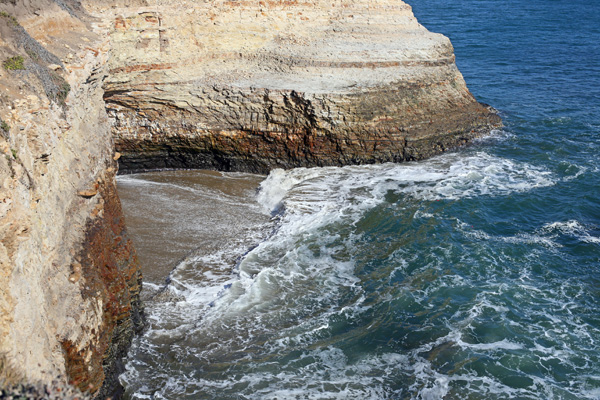
At least in science you didn’t have to read a whole lot of crap. I had a vague notion of majoring in physics and inventing an antigravity machine, but physics turned out not be my strong suit either. After a grueling semester of Mechanics and Wave Motion—in which I tried unsuccessfully to make a hologram with a laser—I was off the physics track for good.
And so I majored in math. I had some difficulties with my initial calculus course, some basic issues in understanding what we were even talking about. But then I got a fellow student named Arnie to help me. He explained the mysterious “chain rule” to me, talked about the infinitesimal quantities dx, dy and dz in a relaxed, cozy tone, as if were discussing the doings of some little gnomes that lived beneath is floor. From then on, math came more easily for me. I liked that there were so amazingly few brute facts to memorize. Given that everything followed logically from a few basic assumptions, there wasn’t all that much you had to learn.
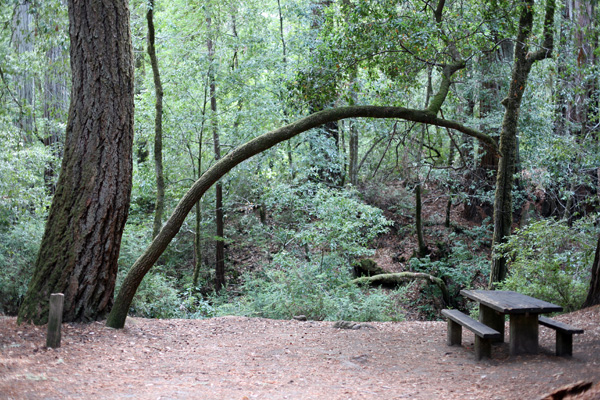
What else did I learn? A little bit about modern art. And I took a German literature class where we read Kafka’s Metamorphosis in the original German, which allowed me to understand that Kafka had meant for his stories to be in some sense funny. But other than that, most of what I learned was from the other students.
I liked talking to my friends, socializing with the girls, walking around the grassy campus, and exploring the nearby Crum woods. I was in with the in-crowd of our class, and I reveled in that. In grade school and high school I’d been more of an outsider.
With my steady stream of C grades being mailed home semester after semester, Pop sensed how little work I was doing. “It’s like you’re sitting at a lavish banquet table, Rudy. And all you’re doing is eating a sandwich that you brought in your pocket.”
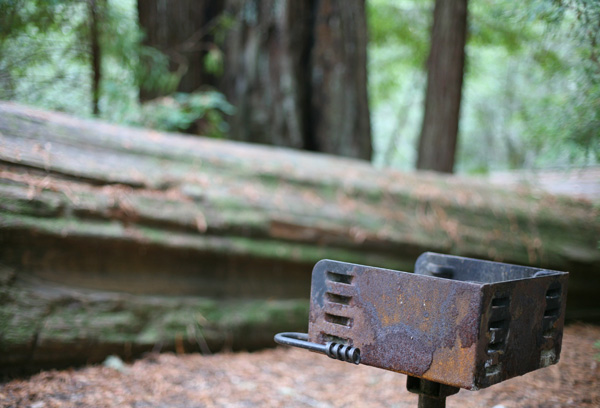
Concerned as he was, Pop even paid me a surprise visit one day—appearing in my dorm room in the fall of my senior year. It ended up being the best day together that we ever had. He was accepting and non-judgmental. We walked around the campus talking about the meaning of life. I even took him down to the Crum woods and showed him the impressively high train trestle that crossed the creek.
We boys liked to walk out to the middle of the trestle—it had two tracks so that, in principle, even if a train came by, you could go to the other side, and if, by some horrible fluke, two trains came at once, you could lie down flat and hold the ties, not that anyone I knew had ever executed this drastic maneuver, although we talked about it a lot, worrying that the train might have a dangling chain that hung to within millimeters of the ties.
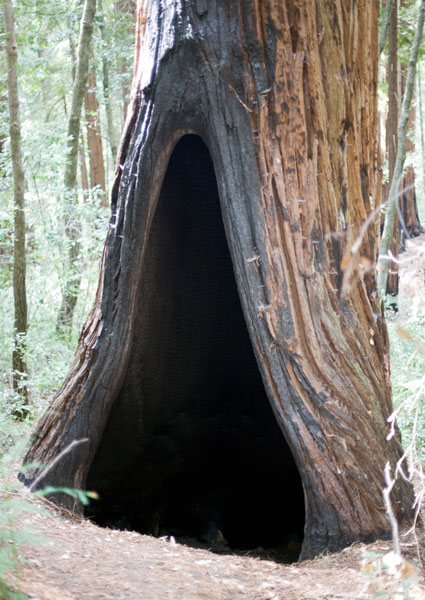
Pop was being such a sport on our big day together that he even walked onto the trestle with me. For those few hours, it was like we were fellow college boys. He really didn’t care much about proprieties or appearances. He just wanted me to be okay. He didn’t want me to fall off the edge.









November 1st, 2008 at 1:25 pm
A pleasure to read.
November 2nd, 2008 at 6:55 pm
Ok, the tears came, so of course I had to send a note 🙂
I almost stopped reading when you mentioned math and “infinitesimal quantities dx, dy and dz”. (This brain never caught on to any of that stuff!) But since you mentioned your Pop, well, it struck a nerve and kept me going. Do peel back the layers to “that” onion on him throughout your work…
It may not make sense to you now, but I’m “told” to send this to you. Grab a free (pdf) copy of my book (see below) and read the chapter “How Would Daddy Answer?” (‘Connecting the dots’ to all this will come later for you…)
Oh, and very beautiful pix, too!
take care,
Louise Lewis, author
No Experts Needed: The Meaning of Life According to YOU!
FREE gift (pdf) copy at: http://www.noexpertsneeded.com
(No stings/spam attached to offer…really!)
…keep writing!
November 9th, 2008 at 6:45 pm
Reading about what your Pop said and did warms my heart, and learning that you once struggled through calculus inspires my mind. Thank you.